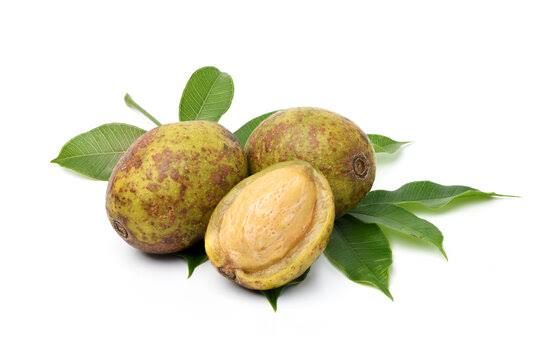
The native tree of West Africa is the African mango (Irvingia gabonensis). There are many people who believe that the fruits and seeds of this plant provide health benefits. The massive, tropical forests of West Africa's deciduous or dense rainforests are their natural habitat. Other common names for the tree include bread tree, dika nut, and bush mango.
The high vitamin C content of African mango fruit makes it a popular cuisine in Cameroon and Nigeria. For many years, alternative medical approaches have employed roots, seeds, leaves, and bark.
The newest ingredient to the plethora of weight loss products available in the US is African mango extract. It is stated that the extract, which comes from the nuts or seeds of the African mango fruit, can help with weight loss. African mango may also help treat long-term health issues like diabetic complications and high cholesterol, according to some research. Even though there has been a lot of interest in African mango supplements recently, more clinical research is required to support their claims.
Value nutritionally:
One hundred grams of African mango fruit, pulp and peel included, provides the following nutrients:
1 . Vitamin C: 62% of the recommended daily intake (DV)
2 . 1 gram of protein
3 . Grams of carbs: 18
4 . Four grams of fat 5. There are 86 calories.
Fruit seed extracts are used in the majority of African mango weight reduction solutions. A good source of plant proteins and healthful fats, the seed also has a high soluble fiber content. Magnesium, calcium, sodium, phosphorus, iron, and riboflavin are also abundant in it. Tartans, flavonols, and ellagic acid are among the 41 phenolic chemicals that have been discovered in African mango seeds through research. These substances flush your body of dangerous free radicals and function as potent antioxidants.
Different components of the African mango tree have long been employed by West African tribes. It's said that the tree's extracts can strengthen bones, improve circulation, lower appetite, raise energy, and enhance cardiac health. Adding these extracts to food and beverages is common due to their special therapeutic qualities. The African mango has several traditional uses and purported health advantages:
1 . Applied to topical pain alleviation in balms and ointments
2 . Constipation is one of its benefits in treating diarrhea and dysentery.
3 . Hernia treatments are administered with bark preparations.
4 . To treat infections, tea steeped with leaves is utilized.
5 . Mouthwashes contain the soft bark, which soothes toothaches.
6 . Scabs and wounds heal more quickly thanks to its antibacterial qualities.
7 . Seeds and seed extracts are used to flavor meals
8 . Cooking is done with edible oil made from the seed.
9 . Juices, jam, and jellies are made from the pulp.
Benefits for clinical practice: African mango extracts have been extensively studied in relation to obesity and body fat percentage. Blood glucose levels and belly fat can both be decreased by African mango oil, according to rat research.
Experiments conducted on humans show comparable outcomes. Individuals who received the extract from African mango seeds saw improvements in their metabolic indices as well as weight loss. Their LDL cholesterol, blood glucose, plasma total cholesterol, body weight, and body fat all decreased by the end of the trial.
African mango may be useful in treating gastrointestinal issues and diabetes, according to a number of additional animal research. Strong antibacterial qualities can also be found in extracts made from the tree's leaves and roots. They can be applied to wounds as an antiseptic and limit the growth of bacteria and fungus. According to a different study, morphine-like pain relief is also present in the water extract derived from the stem bark of African mangoes. Claims of weight reduction The weight-loss benefits of African mango vitamins are backed by a small number of research.
Research on animals provide the majority of the evidence supporting the African mango's ability to burn fat. Further research is necessary to fully understand the effects and mechanisms of this treatment in humans, despite the encouraging results of these individual trials.
Upvoted. Thank You for sending some of your rewards to @null. Get more BLURT:
@ mariuszkarowski/how-to-get-automatic-upvote-from-my-accounts@ blurtbooster/blurt-booster-introduction-rules-and-guidelines-1699999662965@ nalexadre/blurt-nexus-creating-an-affiliate-account-1700008765859@ kryptodenno - win BLURT POWER delegationNote: This bot will not vote on AI-generated content